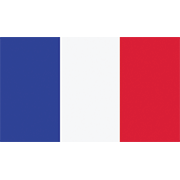Fiscal subject related
As of January 1, 2018, all retailers liable to VAT are required to utilize secure cash register software in France. The practice of self-certification has been essentially discontinued in France as of February 2025, when new legislation was put into place mandating that cash-register software publishers get certification from recognized third-party organizations. All operators are now required to receive certification from one of the certification bodies authorized in France (LNE or Infocert).
As of February 15, 2025, under the French Finance regulation for 2025, self-certification by software publishers is no longer allowed. That means that the only allowed options to stay compliant that remain for cash register software producers are to get certified by certification bodies, i.e., LNE or Infocert.
By making sure that cash-register software complies with requirements for inalterability, security, conservation, and archiving of necessary data, this measure seeks to prevent VAT fraud. Software publishers were previously able to self-certify compliance; however, the new rule requires that the certification be issued by an authorized third party, whether it's Infocert or LNE.
This move affects businesses that use cash-register software and are subject to VAT. A fine of €7,500 per relevant software or cash register system may be imposed for noncompliance; further fines and repeated fines may be applied after 60 days provided for by the law.
This means that retailers working in France need to ensure that their software complies with the new rules or face sanctions. Also, it is important to mention that accounting or management software is not affected by this measure.
Other news from France
TLv6 Implementation Marks Significant Shift in EU’s Trust List Format
A new EU Trust List format, TLv6, will officially replace TLv5 in May 2025 as part of the updated eIDAS Regulation (EU 2024/1183). It introduces key technical changes like a new URI field, updated signature format, and optional phone number support. Organizations must update their systems to avoid signature validation failures and service disruptions, as TLv5 will no longer be valid once TLv6 take... Read more



France Delays the Requirement B2B E-Invoicing Deadline: A New Schedule for Companies
 France
Author: Nikola Novković
France
Author: Nikola Novković
France may once again delay the rollout of mandatory B2B e-invoicing, with a new draft law proposing to push deadlines back by a year. Read more



France: VAT Rates and Updates Regarding Exemptions in the 2025 Finance Act
 France
Author: Nikola Novković
France
Author: Nikola Novković
The 2025 Finance Act in France has significantly adjusted VAT rates, notably raising electricity and natural gas subscriptions from 5.5% to 20% effective August 1, 2025, while reducing VAT on renewable energy heat supplies to 5.5% starting March 1, 2025. Residential property renovation work, including fossil fuel boiler installations, will see an increase in VAT to 20% unless contracts are finalized before March 1, 2025; conversely, solar equipment installations in homes benefit from a reduced 5.5% rate effective October 1, 2025. Read more



VIDA regulation adopted—what does that mean for business?
The EU adopted the VAT in the Digital Age (ViDA) package on March 11, 2025, introducing major changes to the VAT system starting January 1, 2027. Key reforms include mandatory digital VAT reporting by 2030, new VAT collection rules for online platforms, and expanded One-Stop Shop (OSS) registration to simplify cross-border compliance. Additional measures, such as mandatory e-invoicing, phasing out... Read more



New document was uploaded: S4F backoffice patch
S4F backoffice patch is intended for users who have already installed S4F backoffice and are intended to update existing installations to latest version. To do so apply only patches that are marked with version number that is newer than your currently installed instance of backoffice. Read more



Guidelines for incorrectly invoiced VAT under new administrative standards in France
 France
Author: Nikola Novković
France
Author: Nikola Novković
The French Tax Administration has introduced new guidelines allowing taxpayers to correct invoices with incorrectly charged VAT within a two-year window, aligning with the tax authorities' three-year reassessment period. Suppliers can now recover wrongly invoiced VAT until December 31 of the second year following the taxable event, and they no longer need to prove good faith in their error to qual... Read more


